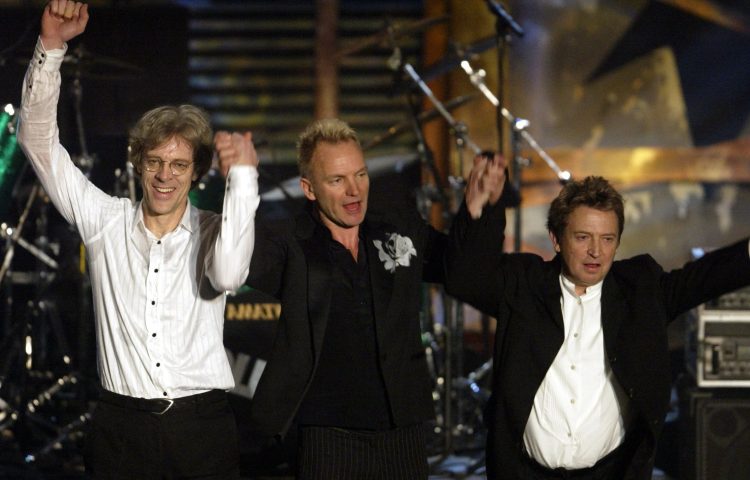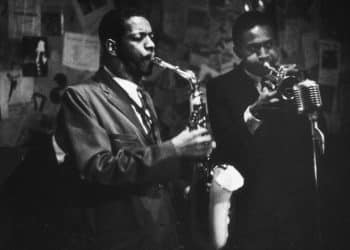The Police were one of the most successful bands of the late 1970s and early 1980s, with a sound that was a unique blend of punk, reggae, and pop. Formed in London in 1977, the trio comprised of Sting (vocals and bass), Andy Summers (guitar), and Stewart Copeland (drums) and released their first album “Outlandos d’Amour” in 1978. The band’s popularity skyrocketed with hits like “Roxanne,” “Message in a Bottle,” and “Every Breath You Take,” all of which topped the charts worldwide. The Police’s music has stood the test of time, and their influence can still be heard in contemporary pop and rock music.
In this article, we’ll be taking a closer look at the 10 best Police songs of all time. These songs are a mix of the band’s biggest hits and lesser-known tracks that showcase the band’s versatility and creativity. We’ll examine each song’s lyrics, musicality, and the impact it had on the band’s career and fans. Whether you’re a longtime fan or a newcomer to The Police’s music, this article will provide an in-depth analysis of the band’s most memorable tracks and why they continue to resonate with audiences today.
1. Every Breath You Take
“Every Breath You Take” is a classic hit by The Police, released in 1983. The song is a hauntingly beautiful ballad with a catchy melody that lingers in the mind long after it’s over. It features Sting’s iconic vocals and the band’s signature sound of guitar, bass, and drums. The lyrics are a mix of love and obsession, with Sting singing about his unrequited love for someone who may not feel the same way. The song’s title is taken from the chorus, where Sting sings, “Every breath you take, every move you make, I’ll be watching you.” The track’s melancholic tone and introspective lyrics, combined with its infectious melody, made it a massive commercial success, and it remains one of The Police’s most well-known songs to this day. “Every Breath You Take” has been covered by numerous artists over the years and has appeared in countless films, TV shows, and advertisements, cementing its place in pop culture history.
2. Roxanne
“Roxanne” is a classic hit by The Police, released in 1978. The song’s upbeat tempo and reggae-inspired rhythm give it a lively, danceable feel, while the lyrics tell a story of a man’s plea to a prostitute named Roxanne to leave her life on the streets behind and be with him. The track features Sting’s distinctive vocals, accompanied by Andy Summers’ guitar and Stewart Copeland’s drums, which provide a rhythmic beat that perfectly complements the song’s melody. “Roxanne” became The Police’s breakthrough hit, gaining international attention and becoming a staple of classic rock radio. The song’s legacy extends beyond its chart success, as it has been covered by numerous artists and has been used in film and television, cementing its place in pop culture history. “Roxanne” remains one of The Police’s most beloved and recognizable songs, and its infectious rhythm and catchy chorus continue to captivate audiences to this day.
3. Every Little Thing She Does Is Magic
“Every Little Thing She Does Is Magic” is a hit song by The Police, released in 1981. The song’s upbeat tempo, catchy melody, and pop-infused sound make it a perfect feel-good track. The song’s lyrics are a testament to the power of love, with Sting singing about how every little thing his lover does is magical and how she has the power to transform his life. The song’s instrumentation, featuring Summers’ guitar and Copeland’s drums, is a perfect accompaniment to Sting’s vocals, creating a rhythmic beat that is hard to resist dancing along to. “Every Little Thing She Does Is Magic” was a commercial success, charting high in multiple countries and becoming a radio staple. The song’s enduring popularity is evident in its continued use in film and television, as well as its frequent cover by other artists. The track remains a fan favorite and a testament to The Police’s ability to blend genres and create timeless music.
4. Message In A Bottle
“Message in a Bottle” is a hit song by The Police, released in 1979. The song’s catchy melody, guitar-driven sound, and Sting’s emotive vocals make it one of The Police’s most memorable tracks. The lyrics tell the story of a castaway on a deserted island who sends a message in a bottle, hoping for a response from the outside world. The track’s instrumentation, featuring Summers’ guitar and Copeland’s drums, creates a driving rhythm that perfectly captures the song’s sense of urgency. “Message in a Bottle” was a commercial success, charting high in multiple countries and becoming a radio staple. The song’s enduring popularity is evident in its continued use in film and television, as well as its frequent cover by other artists. The track remains a fan favorite and a testament to The Police’s ability to combine thought-provoking lyrics with catchy melodies and memorable instrumentation.
5. Don’t Stand So Close To Me
“Don’t Stand So Close to Me” is a hit song by The Police, released in 1980. The song’s catchy melody, Sting’s iconic vocals, and the band’s signature sound make it a standout track in The Police’s discography. The lyrics tell the story of a teacher’s inappropriate attraction to one of his students, and the consequences of acting on those feelings. The track’s instrumentation, featuring Summers’ guitar and Copeland’s drums, creates a driving beat that adds to the song’s sense of urgency. “Don’t Stand So Close to Me” was a commercial success, charting high in multiple countries and becoming a radio staple. The song’s enduring popularity is evident in its continued use in film and television, as well as its frequent cover by other artists. The track remains a fan favorite and a testament to The Police’s ability to tackle controversial subject matter in a way that is both thought-provoking and catchy.
6. Walking On The Moon
“Walking on the Moon” is a hit song by The Police, released in 1979. The song’s reggae-inspired rhythm, Summers’ signature guitar riff, and Sting’s smooth vocals make it a standout track in The Police’s discography. The lyrics tell the story of a man’s trip to the moon and the feelings of weightlessness and freedom that come with it. The track’s instrumentation, featuring Copeland’s drumming and Summers’ guitar, creates a laid-back groove that perfectly captures the song’s sense of weightlessness. “Walking on the Moon” was a commercial success, charting high in multiple countries and becoming a radio staple. The song’s enduring popularity is evident in its continued use in film and television, as well as its frequent cover by other artists. The track remains a fan favorite and a testament to The Police’s ability to blend genres and create music that transcends time and place.
7. So Lonely
“So Lonely” is a hit song by The Police, released in 1978. The song’s punk-inspired sound, Summers’ driving guitar riff, and Sting’s emotive vocals make it a standout track in The Police’s early discography. The lyrics tell the story of a man’s desperation and loneliness after a breakup, and his attempt to find someone new to fill the void. The track’s instrumentation, featuring Copeland’s drumming and Summers’ guitar, creates a driving beat that perfectly captures the song’s sense of urgency. “So Lonely” was a commercial success, charting high in multiple countries and becoming a fan favorite. The song’s enduring popularity is evident in its continued use in film and television, as well as its frequent cover by other artists. The track remains a testament to The Police’s ability to create music that is both raw and emotional, and their ability to connect with audiences on a personal level.
8. King Of Pain
“King of Pain” is a hit song by The Police, released in 1983. The song’s haunting melody, Summers’ intricate guitar work, and Sting’s emotive vocals make it a standout track in The Police’s discography. The lyrics tell the story of a man’s struggle with emotional pain, with Sting singing about the burdens that he carries and the search for release from his suffering. The track’s instrumentation, featuring Copeland’s drumming and Summers’ guitar, creates a moody and atmospheric sound that perfectly captures the song’s sense of melancholy. “King of Pain” was a commercial success, charting high in multiple countries and becoming a fan favorite. The song’s enduring popularity is evident in its continued use in film and television, as well as its frequent cover by other artists. The track remains a testament to The Police’s ability to create music that is both introspective and universal, and their ability to connect with audiences on an emotional level.
9. Do Do Do (Da Da Da)
“Do Do Do (Da Da Da)” is a hit song by The Police, released in 1980. The song’s catchy and repetitive hook, Summers’ guitar riff, and Sting’s vocals make it a standout track in The Police’s discography. The lyrics tell the story of a man’s experience with the police and his disillusionment with the justice system. The track’s instrumentation, featuring Copeland’s drumming and Summers’ guitar, creates a driving beat that perfectly complements the song’s rhythmic hook. “Do Do Do (Da Da Da)” was a commercial success, charting high in multiple countries and becoming a fan favorite. The song’s enduring popularity is evident in its continued use in film and television, as well as its frequent cover by other artists. The track remains a testament to The Police’s ability to create music that is both catchy and socially conscious, and their ability to tackle serious issues in a way that is both entertaining and thought-provoking.
10. Can’t Stand Losing You
“Can’t Stand Losing You” is a hit song by The Police, released in 1978. The song’s punk-inspired sound, Summers’ driving guitar riff, and Sting’s emotive vocals make it a standout track in The Police’s early discography. The lyrics tell the story of a man’s despair after a breakup and his struggle to cope with the loss of his love. The track’s instrumentation, featuring Copeland’s drumming and Summers’ guitar, creates a driving beat that perfectly captures the song’s sense of urgency. “Can’t Stand Losing You” was a commercial success, charting high in multiple countries and becoming a fan favorite. The song’s enduring popularity is evident in its continued use in film and television, as well as its frequent cover by other artists. The track remains a testament to The Police’s ability to create music that is both raw and emotional, and their ability to connect with audiences on a personal level.








